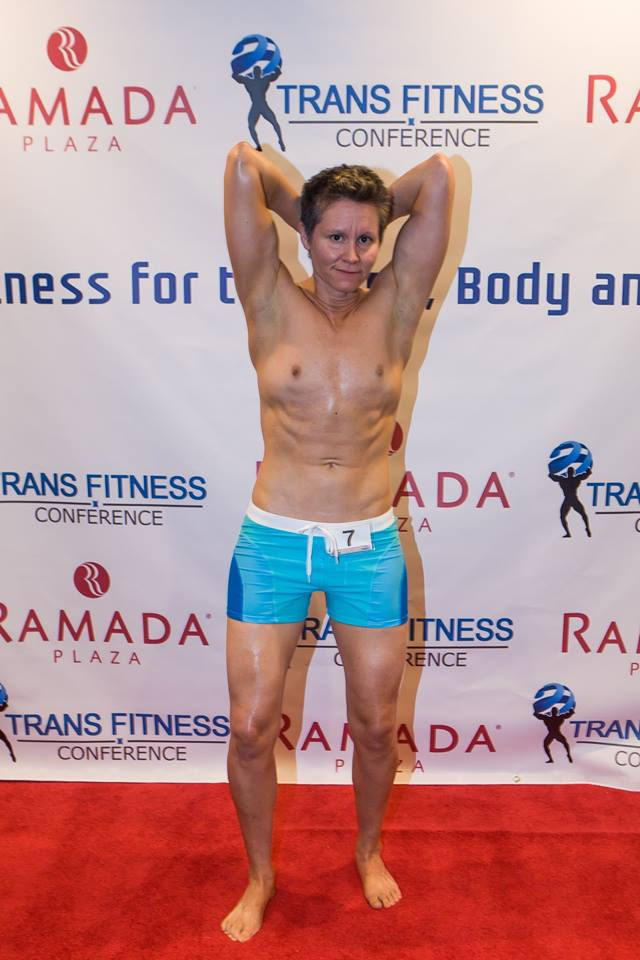In today’s section of Competitors Profiles, we’d like to introduce you to Kennie. He competed in our second and third bodybuilding competitions in 2015 and 2016.
IATB: Tell us a little about yourself.
Kennie: I was born in Austin, TX raised in Fort Worth, TX. I have not always been a lifter, but have always been involved in sports. I played soccer since I was 3 years old, and continued my passion for the sport during college. I attended undergrad at Hendrix College (’06) in Arkansas and still currently reside in Arkansas where I work as the director of the fitness center at a local university. I am also currently working on my Master’s degree, with a thesis focusing on understanding the experiences the transgender community has had with non-academic fitness centers as well as the experiences fitness professionals and gym personnel have had with the transgender community. It is my hope that through this research we can better educate fitness professionals and personnel on what the needs of the transgender community are and expand upon the fitness professional’s knowledge when working with this community. This is becoming more and more important and goes way beyond the issue of locker rooms and bathrooms. I hope to graduate in May of 2017.
IATB: How did you get into bodybuilding?
Kennie: Despite playing sports all throughout my youth and college, I never really got involved with lifting until after high school. To be honest I never saw myself as a bodybuilder until after I competed in my competition kind of spontaneously in 2015. Yes, I lifted, but my focus was more or less staying in shape and general health and for my mental health. Up until a few years ago I mostly focused on training for a couple of marathons and half marathons. It’s still hard for me to see myself as a bodybuilder, as I still have a heck of a lot to learn about it, and am trying to determine what works best for me. The researcher in me has made this difficult however. Since beginning my transition about 7 months ago, I have attempted to keep my workout routine and nutrition relatively constant (with the exception of 6 weeks before the 2016 competition), for the purposes of tracking changes in body composition and VO2 max. The researcher in me is very curious to see what these changes will look like in my own personal journey without the manipulation of too many variables. In a sense I suppose I have become my own case study.
IATB: What’s your diet plan and workout routine?
Kennie: I have in the past typically stuck to a 40-40-20 macronutrient ratio (40% carbs, 40% protein, 20% fat). Generally speaking I would cut about 12-14 weeks out. At this point slowing manipulating my carb intake. I did a 12 week cut prior to my 2015 competition, during which I really wasn’t planning on jumping on stage, because I was pre-t and pre-op and knew I couldn’t measure up to the guys standing next to me. I more or less did the cut to see how I well I would respond. As far as diet goes, it’s actually post-competition or cut that is the more difficult part. It’s easy to dive into eating whatever you want after a competition or cut, but in an effort to not put back on too much body fat, this time around I have done a slow reverse diet during which I have increased carbs and fat a little at a time.
My workout has consisted of mostly compound lifts with some isolations exercises. I workout 5-6 days/week and always keep a little cardio in my routine. I utilize all rep ranges as all have their benefits and separate mechanisms when it comes to muscle growth and strength.
During a cut I will obviously increase the amount of cardio I am doing, with a mixture of both high intensity and moderate-low intensity cardio sessions. I will manipulate variables based on my measurements.
IATB: How did you hear about the FitCon competitions and why did you decide to compete?
Kennie: I actually heard about the FitCon Competition through my girlfriend. If I can recall I had at the time already had it in my mind what my thesis topic was going to be, so she thought this would be a good opportunity for me to begin networking. The competition itself was secondary. Like I said I was not expecting to get on stage. First of all I am a very shy person; not a performer whatsoever. However, I have watched many of my friends compete in bodybuilding or figure competitions and had been waiting for a platform for me to do one as well. I never thought I’d be able to do a competition because of how I identified. It was amazing to know to try something out, even if it’s something I may not necessarily in the long run succeed at.
IATB: How do/did you prepare for the competition emotionally and mentally?
Kennie: Emotionally, the first time around was a little more exciting. The spontaneity of jumping in last minute, perhaps added to that excitement. Mentally it was a little easier the first time around as well. I think it helps not to overthink things when you do not know what to expect.
My second competition in 2016 was different. I knew what to expect, and knew that I was still new in my journey, so it was hard for me not to compare myself to the other guys who would be sharing the stage with me. Not only that I was still pre-op and knew I had done a shorter cut, therefor still carrying more body fat. I got over myself eventually, and was finally able to recognize that I should just be proud of myself for defeating my fears not once, but twice for getting up there and doing something I have always wanted to just try out.
IATB: Have you competed in the past in other competitions?
Kennie: I have not. I have always wanted to, but never knew there were opportunities before 2015.
IATB: What do you think about the creation of IATB – The International Association of Bodybuilders?
Kennie: I am very excited to hear about the creation of IATB. I hope that it encourages the same type of brotherhood the FitCon competition has created, but also hope the creation allows for even more opportunities and venues to compete with an increasing level of competition.
IATB: What are your expectations for IATB? What would you like to see happening?
Kennie: I hope that IATB can become a reputable organization that seeks to invite all transgender individuals to compete no matter where they are in their journey.
IATB: How do you relate bodybuilding to your identity?
Kennie: Bodybuilding is extremely important to how I feel in my own skin. I am still not where I want to be as far as what my ideal image of myself is, so I am excited to see where my journey takes me.
IATB: How far do you think we’ve come and how far do you think we have to go in the fitness industry for people of Trans experience?
Kennie: I think we still have a lot of room for growth in the fitness industry for people in the Trans community. This is exactly why I have chosen the thesis topic I am currently working on. The concept of “transgender” for many gym professionals is still very new. I see a lot ideas of gyms floating around that are specifically for the transgender community. I do love these ideas and do think that it’s important our community have a safe and inviting place to workout in, but I also think it’s important that we not continue to segregate ourselves from the rest of society, in an effort to tackle some of the fears, stereotypes and apprehensions people may have of transgender individuals. Keeping communities apart is not going to help that. Part of that is training gym personnel in an effort to help make fitness centers more inclusive and understanding of the needs the transgender community may have. Something as simple as the ability to self-identify or mark someone prefered gender correctly on paperwork, may go along way in whether or not a transgender individual feels invited in a particular gym atmosphere.
IATB: We like to think of the IATB bodybuilders as ambassadors for the trans community because they show a different but important side of Trans visibility. Do you consider yourself an ambassador for the community? If so, how?
Kennie: I guess in a way I’d like to consider myself an ambassador, just simply because of the research I am conducting. I would definitely like to continue to be a part of this great adventure, however. Whether it’s competing, volunteering or presenting.
IATB: Where do you see yourself 5 years from now?
Kennie: Hopefully more muscular! 🙂 No, seriously…I am not too sure. I hope to have completed top-surgery within the next 5 years. If I compete again, it will definitely help me feel a lot more confident on stage and in life for that matter. I also hope to be continuing my research and if bodybuilding works out, then continuing with that. If not body building will most certainly still be doing something athletic.
IATB: What are some tips you’d give to someone who wants to compete in IATB competition?
Kennie: Practice your routine and posing. Don’t follow my lead in attempting to put things together last minute. I did not realize how much energy posing takes, but it takes A LOT!!! I would also suggest posing after workouts, when you are depleted.
Get a coach if you can afford it. I can not afford a coach, but if I could I would definitely invest in one. No matter how knowledgeable you are I’ve always believe you can learn a lot from others who have actually competed plenty of times before. Just make sure to do your research on the coaches out there.
IATB: Any last word?
I am definitely excited to see the formation of the IATB and am hoping to be as involved in it as I can after my Master’s is complete. This is definitely an awesome opportunity for the Trans community to show that we are just like anybody else, with similar goals, desires and dreams. We are human.
###
Please follow us on Twitter | Instagram | Facebook | YouTube


0 Comments